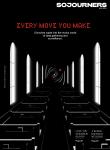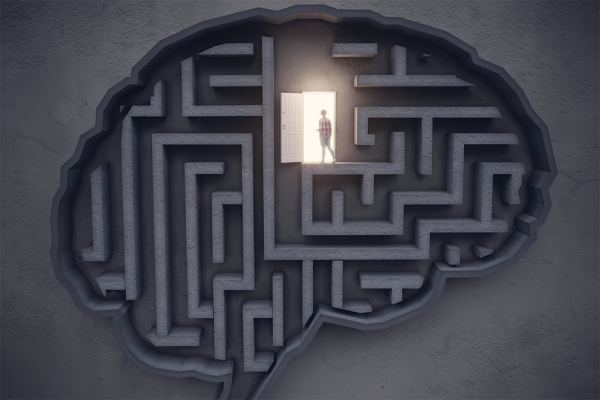FOR 30 YEARS, I held an uncompromising conviction that abortion was murder. I preached against “child-killing,” suffered multiple arrests for blockading clinics, and had pro-choice groups successfully sue me. I led a national anti-abortion organization and directed the only large-scale annual pro-life event held in the U.S. Capitol. I personally appealed to Supreme Court justices to overturn Roe v. Wade.
Today, I no longer have these positions, and I did not applaud the recent reversal of Roe. I remain an evangelical by belief, but I now call myself a “pro-choice pro-lifer.” I have concluded that legislators and judges are not the people to try to resolve this complex, moral, social, and health-related question. Even among religions, there is no consensus on what constitutes permissible or impermissible abortion. Moreover, each woman’s experience with pregnancy is unique. Therefore, there can be no universal mandate forcing her to continue her pregnancy.
My transformation from an absolute to a nuanced position on abortion proceeded slowly and fitfully. Many exasperated old pro-life movement friends ask, “Whatever happened to you?” The short answer: empathetic listening. There came a moment when I realized I was doing all the talking and no listening on this subject. For nearly three decades, I had lived isolated in a fantasy where I presumed everything would work how it was supposed to, so I questioned nothing. In this fictitious pro-life world, all a woman in an unwelcomed pregnancy needed was to call out for help. In response, pro-life people would instantly help her, offering free housing, parenting supplies, medical care, babysitting, and, should she so choose, adoption. “With so much support,” I asked my audiences rhetorically, “why would anyone choose abortion?” I didn’t want answers.
A sobering moment came in 2003. It happened after police threw me into the county jail in Montgomery, Ala., for protest activity. Because of overcrowding, guards placed me in the co-ed psychiatric wing. An African American woman in a nearby cell screamed in distress the whole time I was there. She pleaded in anguish, “Where are my babies? I’ve got three kids! Where are they?” But my imaginary bevy of earnest white Christian women did not run to her offering child care and prayerful sisterhood. That anonymous mother’s shrieks caused a few cracks in my pro-life foundation, but soon after my release, I blocked them from memory.
My anti-abortion work continued. But when I took a hiatus to pursue a doctorate, those earlier cracks reappeared. Reading Dietrich Bonhoeffer’s Ethics, I paused at the brilliant theologian and Nazi resister’s observation, “Those who act responsibly take the given situation or context into account in their acting.” The historical context of Bonhoeffer’s insight burst my fantastical worldview. As a result, I had to rethink the notion that women sought abortions because they didn’t know they were carrying a real baby or were too selfish to bear one. For the first time, I was taking into account the reality I experienced in the Alabama jail. Sure, maybe suburban white women had options other than abortion. But many urban women of color and the rural poor still cannot access those options.
Then came a far more personal and life-changing encounter. Filmmaker and women’s rights advocate Abigail Disney invited me to look critically at my evangelical community’s embrace of popular gun culture. The central question she asked was this: How could one be pro-life and pro-gun? We traveled the country talking on camera to pastors, ministry figures, and born-again gun owners. Abby’s crew captured my colleagues’ jarring declarations about the sanctity of human life while defending their “God-given” rights to use lethal force against anyone they perceived as threats. The result was the Emmy-winning documentary The Armor of Light.
Abby and I became unlikely friends. She was a self-described nonreligious, left-wing feminist; I was an evangelical conservative and right-wing activist. Despite our considerable differences, Abby treated me with respect and patience. She was genuinely curious about my opinions and listened deeply to my explanations. Only after enduring my innumerable soliloquies did she finally ask, humbly and politely, if I would listen to her story of abortion. By then, I felt I owed her that courtesy.
Abby was the diametric opposite of the bereft woman in the Alabama jail. Abby was an heir to an enormous fortune who bore a famous name. She explained how, as a young college-aged woman, she panicked when she learned she was pregnant. The Disneys were a strictly observant Catholic family and ferociously conservative in their social and political opinions. An out-of-wedlock pregnancy meant shameful embarrassment for her immediate family and perhaps even business problems for her great-uncle Walt. “If you had been in my situation at that age, Rob, what would you have done?” Abby asked me. I did my best to put myself in her shoes. For the first time, I tried to live the other’s experience. I ventured an answer that terrified and freed me, telling her, “I would have had the abortion.”
That exchange was my Bonhoeffer nexus with reality. It became my new hermeneutic for understanding Jesus’ encounters with the woman at the well (John 4) and the one caught in adultery (John 8) and his affirming of the shame-filled Peter as they sat on the Galilean shore (John 21). It helped me appreciate Bonhoeffer’s premise that bases “reality” on the “given situation” and “context.” In Bonhoeffer’s prison correspondence, he expounded on how, in the incarnation, God became a real human, not an idealized one.
Until my moment of truth at Abby’s instigation, I had always demanded others leave their reality and enter my religiopolitical fantasy. Now, as God did for us in Christ, I was being called to join Abby in her reality, which required I leave my “perfect” world to enter her imperfect one. In my 40th year of Christian faith, I finally understood the true nature of the gospel. To follow Jesus meant to empty myself for the benefit of the other. This revelation would lead me to a much different judgment about abortion. And it would especially allow me to engage very differently with those who seek and have abortions.
I still do not celebrate terminating a pregnancy. However, I’ve finally accepted that my call as a Christian minister is to listen empathetically and be a companion to those who may face such a harrowing decision. Doing so requires I travel alongside them on their arduous journey, not demand they join me on mine.

Got something to say about what you're reading? We value your feedback!





